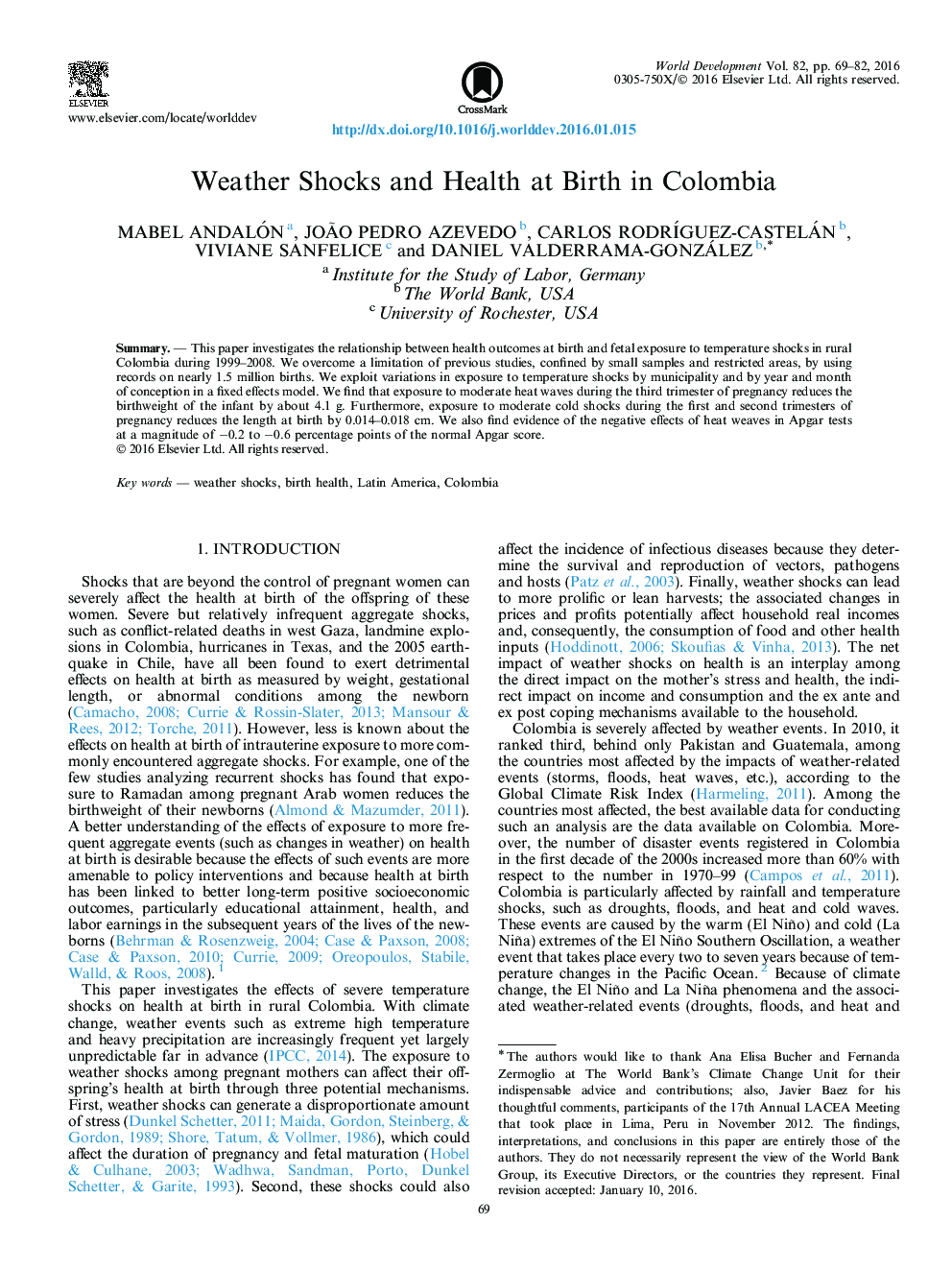| Article ID | Journal | Published Year | Pages | File Type |
|---|---|---|---|---|
| 991246 | World Development | 2016 | 14 Pages |
SummaryThis paper investigates the relationship between health outcomes at birth and fetal exposure to temperature shocks in rural Colombia during 1999–2008. We overcome a limitation of previous studies, confined by small samples and restricted areas, by using records on nearly 1.5 million births. We exploit variations in exposure to temperature shocks by municipality and by year and month of conception in a fixed effects model. We find that exposure to moderate heat waves during the third trimester of pregnancy reduces the birthweight of the infant by about 4.1 g. Furthermore, exposure to moderate cold shocks during the first and second trimesters of pregnancy reduces the length at birth by 0.014–0.018 cm. We also find evidence of the negative effects of heat weaves in Apgar tests at a magnitude of −0.2 to −0.6 percentage points of the normal Apgar score.
